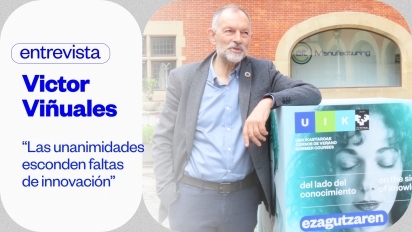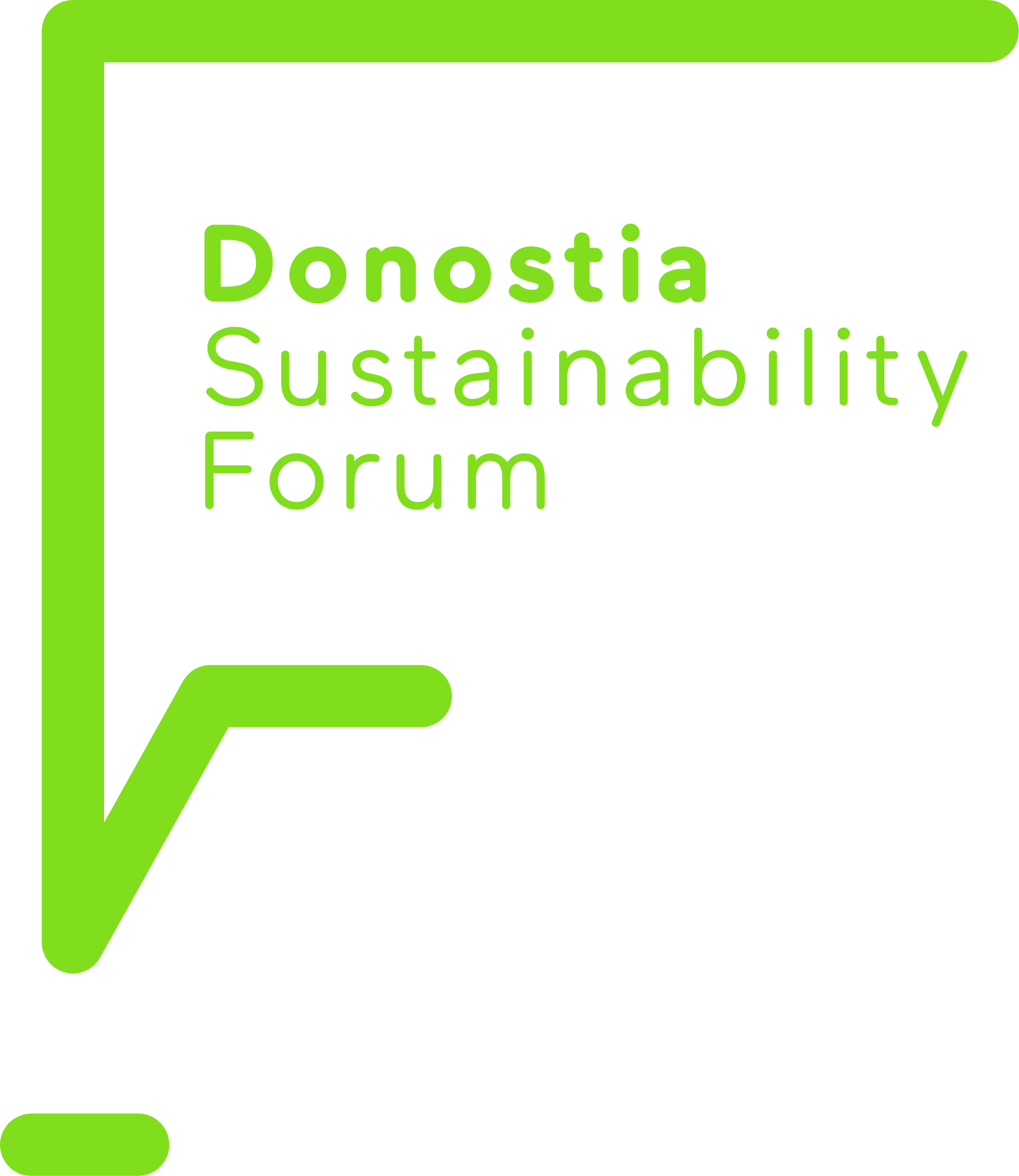Crisis must be used as an opportunity for change
We are living through complex times of great uncertainty so it is good to share our doubts and uncertainties. On this journey towards ZERO emissions and sustainability it is very important to know where we are now and where we are heading. These are points that do not need to generate too much controversy, but the problem starts when we start asking ourselves questions such as when and how to undertake this journey.

The sociologist Victor Viñuales, co-founder and director of Fundación Ecología y Desarrollo (ECODES), emphasises that the journey towards decarbonisation is very different depending on the timescales proposed. The timing is debated, and some people –while assuming that we need to reach the targets– say that we should “ not go so fast”.
The when is very closely related to the how and “very little attention is paid to the how because laws and plans to not envisage it.
Figures are mentioned and targets proposed, but how to achieve them is not explained.
The 10 factors that determine the How.
This year, an early heatwave in May followed by hailstorms destroyed entire crops. In the region of Castilla La Mancha firefighting resources were not in place because a high level of risk was not expected at that time of year. “In crisis situations we take decisions that we would not have thought of before, as happened in the Covid-19 health crisis”. Taking advantage of crises… Have we done it?”
Victor recognises that the EU has realised that it is very dangerous to have energy dependence on “complicated countries (Russia) and there is greater security in depending on our sun and wind resources. Crises need to be exploited to bring about change.
It will not be possible to achieve the energy transition unless there is a fair social transition. The real perception of the potential damage will not only affect mining areas, “the yellow jacket [protestors] will appear on several fronts. The political measures taken to reduce the price of fuel in the face of protests by transporters are understandable, even though this involves doing exactly the opposite of what was envisaged in the roadmap for eliminating fossil fuels. What is needed is a social transition in line with the climate transition; otherwise, the process will come to an end.
Agriculture is one of the sectors that will be most affected because it will not be possible to work on the basis of conventional wisdom when it comes to sowing or harvesting crops. There is a lack of certainty, and atmospheric phenomena can occur unexpectedly. We need to widen the definition of ‘vulnerable sectors’ and break with the traditional approach of the Administration, which merely reacts to demonstrations out on the streets and does not put prevention plans in place. Victor Viñuales asks the following questions: Is anybody thinking about what will happen to workshops/garages that repair combustion engine cars? Is anybody looking at what should be done with ski resorts?.
Our actions are determined by the Ethnosphere in which we feel, think, dream or create ideas. They are our cultural habits. Victor asks another question: Are investments envisaged in the recovery plans following the pandemic for an intangible element such as ’recovering hope in society’? Some progress has been made in the legislative and technological transitions. Where we are still behind is in the cultural transition, which is what determines everything.
For example, we could change our perception of the need to have a car according to our position, however absurd the use we make of that car.
The sociologist Victor Viñuales recall the concept that emerged from the Ethics Centre of Oxford: moral bioremediation (i.e. taking large doses of oxytocin to improve empathy towards others). The transition will not stumble due to the lack of technology but to our lack of trust in other people and an ability to share.
People who think ahead take more sustainable and more innovative decisions. Those anchored in the short term are more prudent and less proactive. We need to act with the mentality of people who apply cathedral thinking, like those who started to build cathedrals in the past knowing that they would never see them finished. The current way of thinking is that “ whoever comes after us can sort it out”. This is precisely what acts against the required transition. “It is all about thinking of our children and our grandchildren. We benefit from the shadow of the trees that our ancestors planted. Knowing what we know today and about the consequences of our actions, we need a conspiracy of long-term thinkers”.
We cannot continue with the system of international agreements that require unanimity to be approved, and forgetting to go forward together because the slowest always holds back the others in the race. At least, we need to go forward with the most innovative and boldest people. Social change works through imitation. Those at the head determine what happens. “Quite often, when there is consensus there is no innovation”.
We do not have much time, we need short cuts or different perspectives on needs to be done. Disruptive change, such as using solid shampoo that avoids the use of plastic containers, or using water to make shampoo as shown by a young Dutch woman in her doctoral thesis in 2017 that is now a reality in supermarkets.
Adaptation and mitigation. We need to focus our efforts on both these elements, on actions that have direct and derived benefits. We previously thought that adaptation was not so urgent but now we realise that it is extremely urgent. In agriculture, geography, architecture, urban planning… something needs to be done.
Laws do not change things on their own. “When there are vicious circles, one single action does not change things. We need to create a virtuous circle and approach problems with a systemic vision. “The world does not change due to a law, a new technology or greater social awareness. The solution is interlinked between the different ecosystems”.
We need to create a culture of conversation, cooperation and co-responsibility in which everyone can see what he/she can contribute. Cities will always be clean if everybody sweeps their bit of sidewalk. “Instil a culture of co-responsibility and cooperation in society”.
Victor Viñuales also underlines the need for Hope as a driver of the revolution. “Nothing was done before because we did not know about climate change, and it is not being done now because there is no hope. Hope is the twin sister of Will. It is essential to manage hope”. One possible solution could be to reduce the scale of intervention in problems, but at least we would recover hope in terms of things that we can do. “Together with hope, determination. We should neither flagellate ourselves too much nor be diverted from our purpose”.



